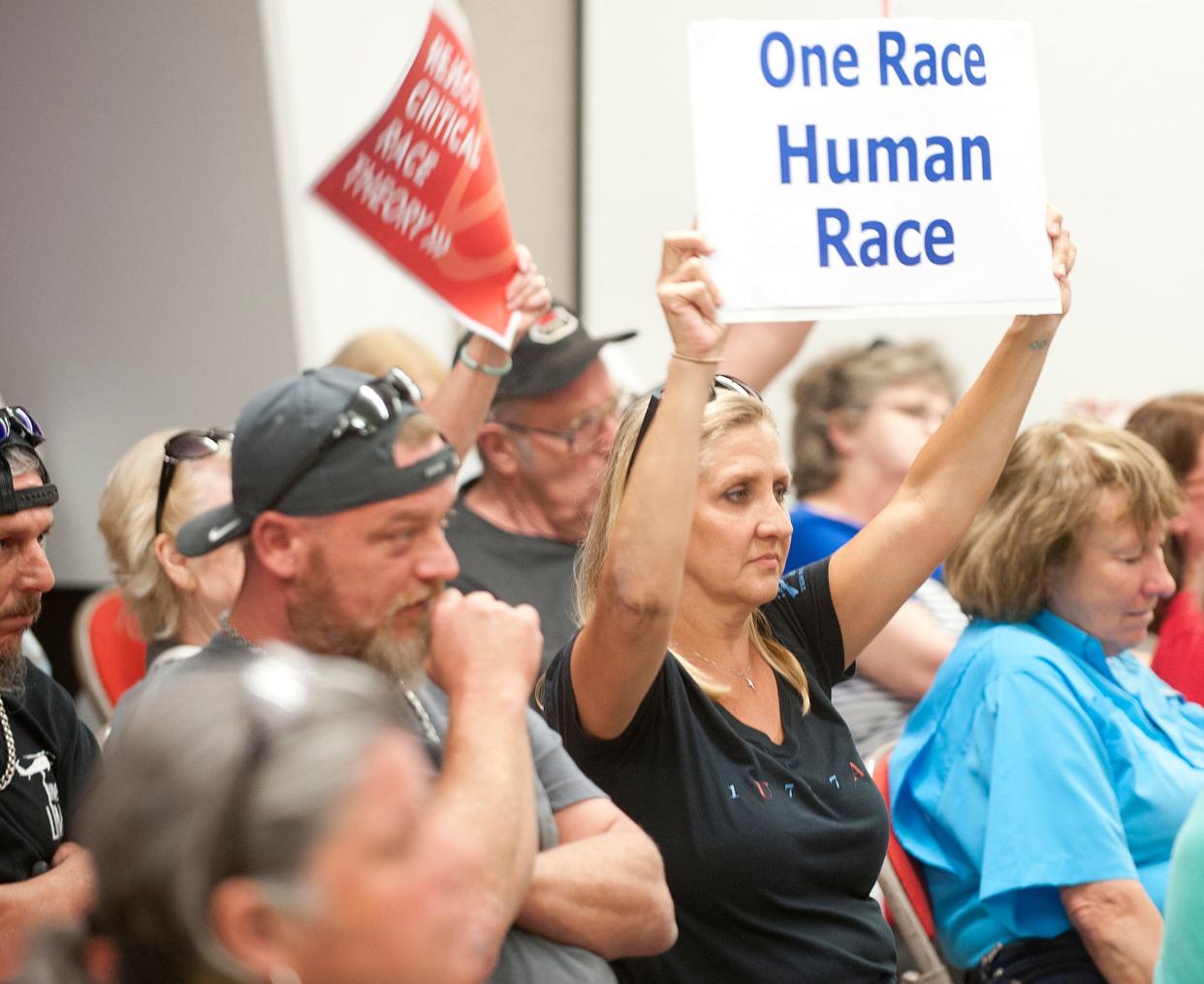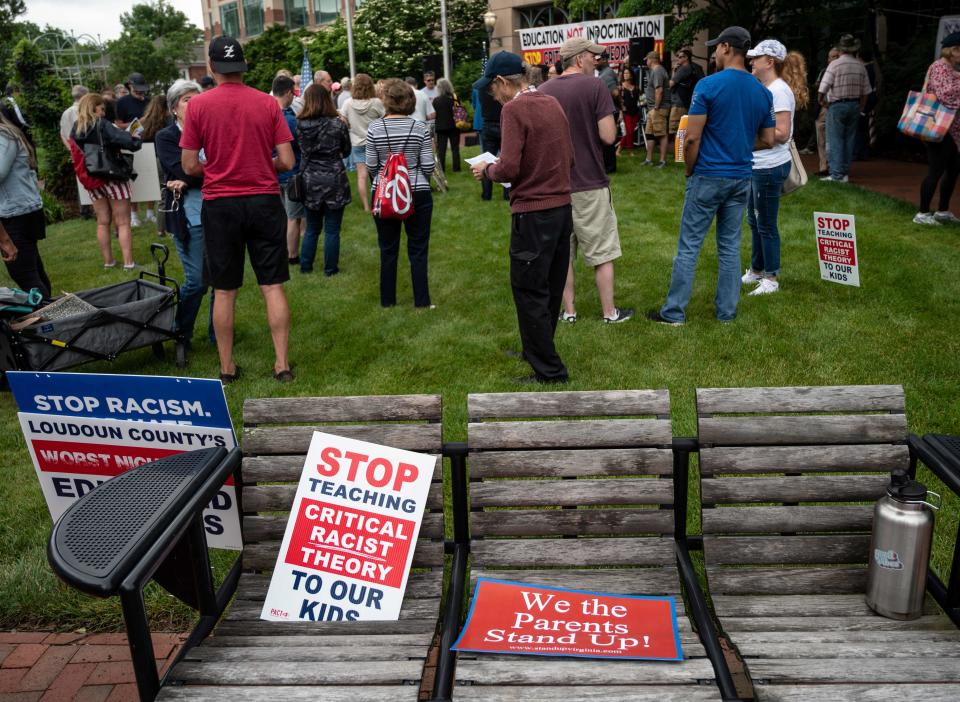Fights against critical race theory are about power, and the left should stop engaging

Spoiler alert: Critical race theory isn’t taught at a single K-12 public school in the country.
But if you’ve been following legislations popping up in statehouses and school board meetings from coast to coast, it’d be easy to think it has been a part of our curriculums for decades. To date, more than 20 states have enacted or are attempting to enact laws that curb the teaching of something not taught by teachers in public schools.
That effort isn’t about critical race theory; it’s about power and who gets to shape ideas. A recent school board meeting in Loudoun County, Virginia, that got so raucous it had to be cut short is a prime example. At least one person was arrested, and attempts were made to shout down the school board over race-related curriculum and gender policy.
Here's how an Education Week report defines critical race theory, which it says has been around for more than 40 years: “The core idea is that racism is a social construct and that it is not merely the product of individual bias or prejudice, but also something embedded in legal systems and policies."

Or as Kimberlé Crenshaw, a scholar who helped to create the concept, told Time magazine: “It’s an approach to grappling with a history of white supremacy that rejects the belief that what’s in the past is in the past, and that the laws and systems that grow from that past are detached from it.”
Given how simple and straightforward it is, rational minds would expect to see an accurate definition in conversation. That is not always the case.
In Alabama, state Rep. Chris Pringle filed a bill for next year’s legislative session that would make the teaching of critical race theory illegal in his state. When asked what critical race theory is, Pringle told a local journalist that “it basically teaches that certain children are inherently bad people because of the color of their skin, period.”
In Washington state, a recent bill signed by Gov. Jay Inslee to increase professional development training on issues of race and anti-racism for educators and staff also became cannon fodder for critical race theory opponents. A school board member cited the legislation in a resolution opposing critical race theory teachings in the classroom despite the superintendent noting it isn’t taught there. The motion narrowly failed.
Even a cursory look at proposed or enacted legislation and commentary from self-proclaimed anti-critical race theory crusaders reveal this isn’t a debate on the merits.
If it was, opponents whose definitions of the concept are far afield would admit they were mistaken and move on to something else.
In a political environment where culture wars play out across a zero-sum left vs. right spectrum, acknowledging an error is akin to waving the white flag in battle. Critical race theorists and others who value definitions and facts should not engage opponents on the merits of the concept. But while we cannot take arguments against critical race theory literally, the moment demands they be taken seriously.
Critical race theory isn’t the first term taken out of context by some on the right in order to create a boogeyman that misleads the public. It's just the latest. It joins the intentional misclassification of other terms – woke, cancel culture, defund the police, affirmative action, diversity and inclusion, anti-racism – used to gin up controversy in a country that is becoming more nonwhite by the year. And while not all in opposition are white, this is very much about keeping America tied to white identity and ensuring that the country get as far away from confronting its long history of racism as possible. With very little to fight for, the anti-critical race theory contingent has found something to fight and politically organize against.
We cannot allow this to stand. If legislatures and school boards usher in laws and twist curriculums that prioritize sanitized lies over ugly truths, the never-ending pursuit of a more perfect union takes several steps back. Worse, the brutality that was chattel slavery is swept under the rug, morphing enslaved Africans into “workers” or “immigrants” – to say nothing of an accurate accounting of our nation’s other atrocities.
As the headline for a New York Times column by anti-racist scholar Ibram X. Kendi states: "Racial Progress Is Real. But So Is Racist Progress."
The backlash against critical race theory may not be based on anything real, but its threat to racial progress certainly is real. If bad actors brand racial equity and anti-racism as anti-white and anti-American, the stories we tell ourselves about America become less biography and more hagiography. If we raise a generation to believe all is well, we effectively halt the progress of what we could be.
Maurice Mitchell is the national director of the Working Families Party.
This article originally appeared on USA TODAY: Stop engaging in the hollow fight against critical race theory

